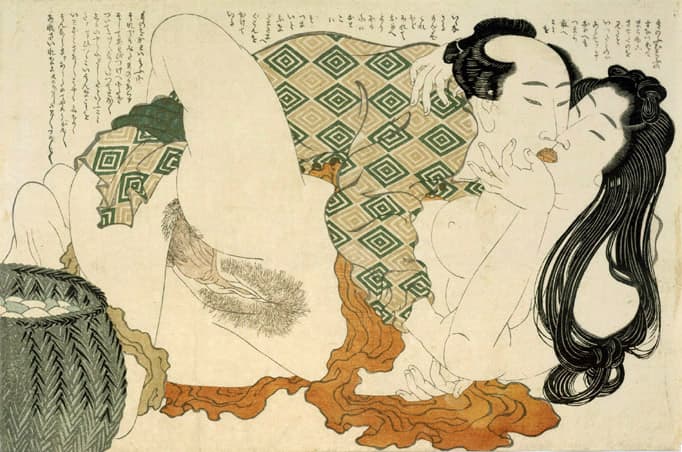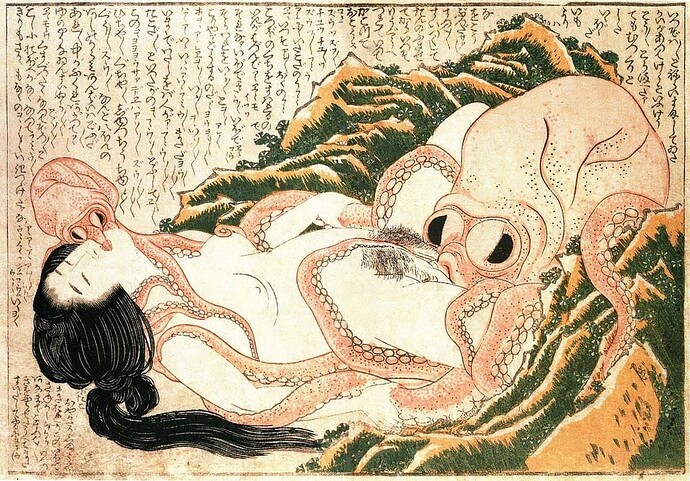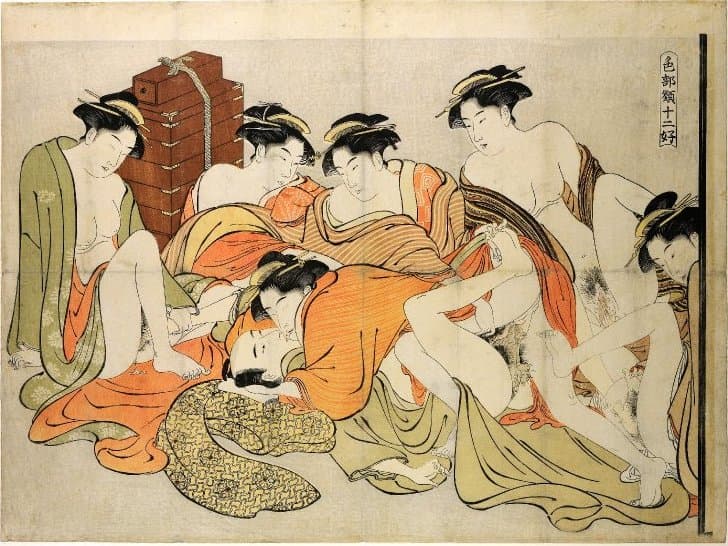I have some questions. What are the “national standards” used to determine the serious value question in obscenity? Is there a list of the standards used? If there is no list, then how can it be called the “objective prong” of the Miller test?
“I know it when I see it.”
I have some questions. What are the “national standards” used to determine the serious value question in obscenity? Is there a list of the standards used? If there is no list, then how can it be called the “objective prong” of the Miller test?
There are no national standards. Please remember that Miller was all about “community standards”. That means what may be considered as having serious value in New York or San Francisco may NOT be considered as having serious value in Buttfuck, Minnesota.
In pre-Internet times, publishers didn’t have a problem with this, because they simply had a blacklist of states (or even zipcodes) that they simply would not ship to. That made perfect sense, because you cannot be accused of violating ‘community standards’ if you do not ship your works into that community.
Miller made perfect sense in the pre-Internet era. That brings to mind a question that I do not have the answer for – how does Amazon deal with community standards? Do they maintain blacklists as well, or do they simply treat the entire country as having the same ‘community standards’ as the lowest common denominator, and as a result, just refuse to carry/ship certain items, period?
In the Internet-era, Miller no longer makes sense, it has no relevance. Frank ended up being prosecuted in Georgia, because an undercover officer in the Middle District of Georgia emailed him, asking where his stories could be found. Because Frank was a bloody fool, and failed to take any precautions, he rendered himself subject to the jurisciction of one of the most conservative regions to be found in America, which is why he was put on trial (and convicted) there.
For anyone publishing anything on the Internet, this is a major concern. It is literally impossible for one person to know the standards applicable in all of the potential jurisdictions that your materials could be downloaded to. So, to avoid the potential for arrest and prosecution you have to do one of two things:
-
You have to avoid publishing anything that might potentially offend or upset even the most sensitive reader of, say, Disney publications.
-
You have to take pains to conceal your identity, such that you cannot be identified or located. This is what Tor (and Tor-based emails) are for.
Here is an interesting essay, almost 12 years old now, on the relevance of “serious value”.
No, there is a national standard. Pope v Illinois established that.
No, there is a national standard. Pope v Illinois established that.
Right you are. That’ll teach me to play lawyer…
I did read something somewhere that even though it’s technically a national standard, and that it is “objective”, people will inevitably insert their own preferences, thus making the call subjective. Which it is!
Whether you broke the law is in the eye of the beholder.
Whether you broke the law is in the eye of the beholder.
That’ll screw you every time.
The moment you invoke terms such as prurient or offensive. The criterion ceases to be objective.
What constitutes “excessive interest” in sexual matters? Excessive implies there exist some proper amount, so what exactly what that amount be? And who decides that?
Offensive is even more subjective, and more than that, even more arbitrary. Offensiveness is not an inherent quality of any piece of media. Offense is an individual’s personal reaction to said media, which could arise for a myriad reasons, some good, some bad. The simple fact that people can and often do react similarly to the same piece of media does not make that an empirically demonstrable component of the media itself.
More than this however, why does any of this matter? Assuming that these materials aren’t being displayed in a way that’s public, or otherwise imposed upon people do not wish to see them (which laws already exist to prevent) - why the fuck does it matter whether or not it’s patently offensive, or “appeals to prurient” interests?
Is ones outrage at the “mere existence” of such content sufficient to override the fundamental rights to speech and media that the people who produce them and consume them have?
My Mom finds masturbation obscene…
I wasn’t asking about prurient interest or patent offensiveness. I was asking about the serious literary, artisitic, political, or scientific value prong, and the reasonable person standard. It is often referred to as a national standard. My question was, what is this national standard?
I see.
Well in that case, I would say the reasonable person standard is not only non-objective, but also incoherent.
Value is not derived through the exercise of reason. A reasonable person (in the context of value)is not a person who necessarily values anything in particular, say x,y,z. But is instead someone who exercises reason to follow their existing values to their doxastic corollaries.
So if valuing p implies valuing q
And person x values p
Then person x if he is reasonable should also value q.
But of course that’s not what reasonable means in this context, in fact it has very little to do with the exercise of “reason” in any discernable way. Rather , reasonable person is typically used as a synonym for “average American”. And so despite pope vs Illinois explicitly rejecting a majoritarian criterion. It is still exactly that, only the majority is now relative to americans generally speaking as opposed to the local community.
So very likely a lot of the obscenity rulings are wrongly decided.
I think every single obscenity conviction is wrongly decided as obscenity should not exist at all. Regarding the rulings about the constitutionality of obscenity, I would say that the courts seem to be remarkably self consistent(which is the judicial standard of correct and incorrect judgements) In the sense that all they seem to do is restate what has already been said in evermore obtuse ways while saying exactly nothing novel.
Pope vs Illinois stripped of it’s legalisms and assorted horseshit is essentially saying.
" We reject community majoritarianism and replace it with national majoritarianism"
Not exactly a paradigm shift…
Venue shopping should be considered on level with other unethical methods.
I have to brush up on html.
Good thread.
At work. Has anyone tried filing defective process of service in such cases or, at least, filed for special appearance?
The only objective parts about the “serious value” prong is the part that mentions ‘scientific’ value. Everything else is wrong.
There’s no objective, concrete rule that precludes pornogaphy from being considered “art”, and many philosophers and artists have begun to classify ‘pornography’ itself, regardless of what kind, as a form of art, in and of itself.
But as a matter of plain, objective fact: pornography (and by pornography, I mean graphic or explicit imagery or descriptions designed with the intended function of eliciting sexual feelings or desires) IS a form of art.
There is simply no reason why it shouldn’t be considered art. I’ve seen so many arguments, many of them from former statesmen, philosophers, contemporary art critics, and even SCOTUS Justices for why they believe it isn’t art. Arguments range from their belief that pornography is not expressive of emotions and sexual feelings are not ‘emotions’, to preferential critiques falsely presented as objective categorical judgements, to semantic arguments, like that it performs a specific function and that "art isn’t a tool.
And quite honestly, all of these arguments are wrong. None of them hold up or withstand criticism, and fall apart the moment someone begins to question them.
The reason why pornography is a form of art is, quite simply, it falls into the literal definition of art.
Art
(noun)
- the expression or application of human creative skill and imagination, typically in a visual form such as painting or sculpture, producing works to be appreciated primarily for their beauty or emotional power.
Sex, depictions of sex, sexual feelings, and the gratification of those feelings or impulses ARE valid artistic subjects and functions. Pornographic works, be they expressed by way of audio-visuial or textual mediums, are ubiquitous throughout human history.
There exist famous paintings, drawings, and sculptures which depict graphic designed to entertain the sexual impulses and desires of their makers, and those who would share these objects of their desire with, or employ their artistic talents to do so for an audience.
There are Japanese paintings dating back to the 1700 and 1800s depicting all manner of sexual conduct. From idealized full-body images of a single naked woman posing lasciviously or suggestively, to wood-block carvings of men having sex with their wives with full genital penetration in view, as well as drawings depicting women fornicating with squids, to a single woman depicted being ejaculated by multiple partners.

I don’t see how ANYONE can look at this and argue that the modern-day examples of this, whether they be drawings or photographs, should be denied the right to be regarded as what they objectively, definitively, and factually are. Art.
It could be the most outrageous or offensive depictions. A work could contain non-realistic cartoon, or realistic pencil drawing depictions of infants engaged in sexual intercourse with dogs for all anyone could care, but to take that drawing and delude a sitting judge or jury to substitute their emotional reactions for an objective determination of the fact that THAT DRAWING is A WORK OF ART WITH ARTISTIC VALUE is an injustice, not only against the person on trial, but to the concept of art itself, if not the American people by misusing the courts in such a way that patently and plainly denies facts.
There seems to be a strange disconnect between the conceptions of “art” and artistic value. Even the most ardent of paleo-conservative dingwats would probably concede that modern art does satisfy the academic definition of art. But they would at same time deny that it has any artistic value whatsoever.
I guess for them art without artistic value is like a tool that doesn’t work. It’s intention is to be one thing, but it fails to perform that function in practice.
I wouldn’t be surprised if the term “artistic value” was chosen specifically to weasel out of the very incontrovertible point that porn is literally and definitionally art.
If anything will convince the SCOTUS to pick up a case and revisit the obscenity doctrine, it will be pointing out the factual, doctrinal, and philosophical shortcomings inherent in the very concept of obscenity, in addition to exposing them to the harms caused by it, whether to society or to individuals.
There is no value in retaining the obscenity doctrine. Any liberal-minded person could see why this doctrine is wrong.
I’m sorry, liberal-minded was wrong.
Any REASONABLE PERSON could see why the obscenity doctrine is wrong, even when applied to that which they personally believe to be ‘obscene’.
I’m sorry, what? That doesn’t make any sense.
“Artistic value” is literally what defines art. You can’t argue that something is art but devoid of artistic value, that’s just not possible. It’s the artistic attributes that define it as such.
I’m sure we can all look at a banana thumb tacked to a wall and say it’s not art, but given the context by which the work was created in, in conjunction with the setting, the message being conveyed (the artistic value) is that of a ‘meta’ nature, whereby it’s a critique of the ‘art’ community.
Some may argue that that’s not ‘art’, but they’re literally wrong. Definitions are meaningless if people can arbitrarily pick and choose what and how they apply, despite meeting the definitive criteria for it.
Situations like this mostly arise due to the reality that many words don’t have set definitions across all possible contexts. We still use gender and sex rather interchangeably here in colloquial language although modern medicine has very different definitions for the two. 50 years ago, even the psychiatric authorities of the time refused to make that delineation.
I don’t want to dig a rabbit hole into the philosophy of language but this gets into the millennia old problem of whether language ought to be descriptive or prescriptive. Whether matters of definition should be settled by a analysis of how it’s used currently, ie something akin to a linguistic census. Or whether the definitions should be prescribed by some figure or institution of authority.
The aforementioned paleo-conservative detractors of modern art would probably admit that it is art by the the definition set by “academia”, but they reject that prescribed definition in context of speaking on their own impressions in favor of the more colloquial understanding. In fact, that’s exactly what they have been and still do to this day with gender.
The use of the word “Serious” however, is what completely kills the possibility of an objective criterion even if the dictionary, textbook, definition of art is granted for the sake of discussion. And I don’t know if the wonderful folks at the supreme court would concede even that.
Once you involve the word “serious”, you create a catch-all loophole.
They’ll say - “Sure its art, and sure it has artistic value by virtue of being art… buuuuut… does it have serious artistic value?”
Unless we are to create some empirical methodology for rating the “seriousness” of art - which I dont believe is possible - this subjective get out of jail free card will always be available.

